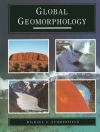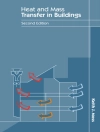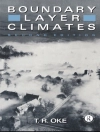This book comprising seven parts is organized under two sections. The first section deals with environment containing four parts, whereas the second section, containing three parts, is on energy. The first part deals with some aspects of hydrologic impacts of global warming and anthropogenic changes. Part II is on bio-environment and discusses plants, biomass, and bacterial species. Part III focuses on chemical environment. Section one is concluded with Part IV on social environment. Section two starts out with Part V on solar energy. Hydropower is discussed in Part VI. The concluding Part VII deals with biogas. The book will be of interest to researchers and practitioners in the field of water resources, hydrology, environmental resources, agricultural engineering, watershed management, earth sciences, as well as those engaged in natural resources planning and management. Graduate students and those wishing to conduct further research in water and environment and their development and management may find the book to be of value.
Table des matières
1. Structural Evaluation of Cell-Filled Pavement, by Subrat Roy.- 2. Global Warming Issues-Need for Sustainable Drainage System in Urban Areas-Green Construction Technologies, by A.K. Shrivastava.- 3. Water Hyacinth: A Useful Plant to Improve Rural Economy, by Priti Mathur.- 4. Growth, Biomass and Carbon Sequestration by Ttrees in Nutrient Deficient Bhata Land Soil of Bilaspur, Chhattisgarh, India, by K.K.Chandra.- 5. Impact of Copper Oxide Nano Particles on Growth of Different Bacterial Species, by Tapan Adhikari.- 6. Performance of Low Cost Microbial Fuel Cell Using Earthenware Separator by Sudhansu Behera.- 7. Synthesis of Ca O2 Nanoparticles for Environmental Emediation, by Sapana S. Madan.- 8. Superiority of Re-Circulating Fluidized Bed Reactor over Existing Reactor Arrangements for Chemical Looping Combustion – A Review, by Sachin Tomar.- 9. Enhancing N Use Efficiency and Reducing N2O Emission by Coating Urea with Newly Identified Bio-molecule (C20H30O2), Nano-Zn Oxide and Nano-Rockphosphate, by S. Kundu.- 10. Gamma Radiation Technology for Hygienisation of Municipal Dry Sewage ludge- Naresh Kumar Garg.- 11. Participatory Approach for Corporate Social Responsibility Plan in India, by Dr. Rajesh Puranik.- 12. Solar Powered Cold Storage System for Horticultural Crops, by P. L. Singh.- 13. Feasibility of Solar Pumps for Salt Farmers, by Kapil K Samar.- 14. Development of Uttarakhand Using Alternative Energy Source as Micro Hydropower, by Jyothi Prasad.- 15. Comparative Studies on Performance of Commercially Available High Power PC-LED Bulbs Under Tropical Condition, by Arindam Chakraborty.- 16. Development of Pedal Operated Flour Mill, by Yallappa D.- 17. Development of Family Size FRP Biogas Plant Based on Kitchen Waste, by Deepak Sharma.- 18. A Computer-Based Expert System to Design Deenbandhu Biogas Plant, by Sudhir Narayan Kharpude.- 19. Prosopis Juliflora–A Potential Problematic Weed for Lignocellulosic Ethanol Production- Vijayakumar Palled.- 20. Oil Extraction, Biodiesel Production and CI Engine Investigation Using Madhuca India Methyl Ester, by Amit Karwade.- 21. Design and Development of Producer Gas Based Heat Exchanger for Drying Application, by D.K.Vyas.- 22. Carbon Storage Potential in Dominant Trees of Koraput District of Odisha, by Kakoli Banerjee.- 23. Study of Geothermal Energy Potential with Geothermal Doublet, by Shibani K Jha.
A propos de l’auteur
Vijay P. Singh is a University Distinguished Professor, a Regents Professor, and the inaugural holder of the Caroline and William N. Lehrer Distinguished Chair in Water Engineering at Texas A&M University, USA. He received his B.S., M.S., Ph.D., and D.Sc. degrees in Engineering. He is a P.E., P.H., and an Hon. D. WRE. He has published more than 910 journal articles; 25 textbooks; 60 edited reference books, including the massive Encyclopedia of Snow, Ice and Glaciers and Handbook of Applied Hydrology; He has received more than 90 national and international awards including Arid Lands Hydraulic Engineering Award, Chow Award, Torrens Award, Norman Medal, and EWRI Lifetime Achievement Award, given by ASCE, Ray K. Linsley Award and Founder’s Award, given by AIH; Crystal Drop Award, given by IWRA; and Outstanding Distinguished Scientist Award given by Sigma Xi, and three honorary doctorates. He is a Distinguished Member of the ASCE, a fellow of EWRI, AWRA, IWRS, ISAE, IASWC, and IE. Hehas served as the President and Senior Vice President of the AIH. Currently, he is the editor-in-chief of two book series and three journals.
Shalini Yadav is a Professor and Head of the Department of Civil Engineering, AISECT University, Bhopal, India. Her research interests include Solid and Hazardous Waste Management, Construction Management, Environmental Quality, and Water Resources. She has executed a variety of research projects/consultancy in Environmental and Water Science and Technology and has got rich experience in planning, formulating, organizing, executing, and management of R&D Programs, Seminars, and Conferences at National and International level. She has got to her credit guiding an appreciable number of M.Tech and Ph.D. students. She has published more than 10 journal articles and 30 technical reports. Professor Shalini Yadav got her M.E. and Ph.D. Degree in Civil Engineering with specialization in Environmental Engineering. She is a recipient of national fellowships/awards and she is a reviewer in many International journals. She has been recognized for one and half decades of leadership in research, teaching, and service to the Environmental Engineering Profession.
Ram Narayan Yadava holds the position of Vice Chancellor of the AISECT University, Hazaribagh, Jharkhand. His research interests include Environmental Quality and Water Resources, Hydrologic Modeling, Environmental Sciences, R&D Planning and Management. He executed a variety of research/consultancy projects in the area of Water Resources Planning and Management, Environment, Remote Sensing, Mathematical Modeling, etc. Dr. Yadava has been recognized for three and half decades of leadership in research and service to the hydrologic and water resources profession. Dr. Yadava’s contribution to the state of the art has been significant in many different specialty areas, including water resources management, environmental sciences, irrigation science, soil and water conservation engineering, and mathematical modeling. He has published more than 90 journal articles; 4 textbooks; 7 edited reference books. He earned his M.Sc. from the Banaras Hindu University (BHU) Varanasi and Ph.D. from the Indian Institute of Technology Bombay (IIT Bombay), India. Also, he is the recipient of Raman Research Fellowship and other awards.












